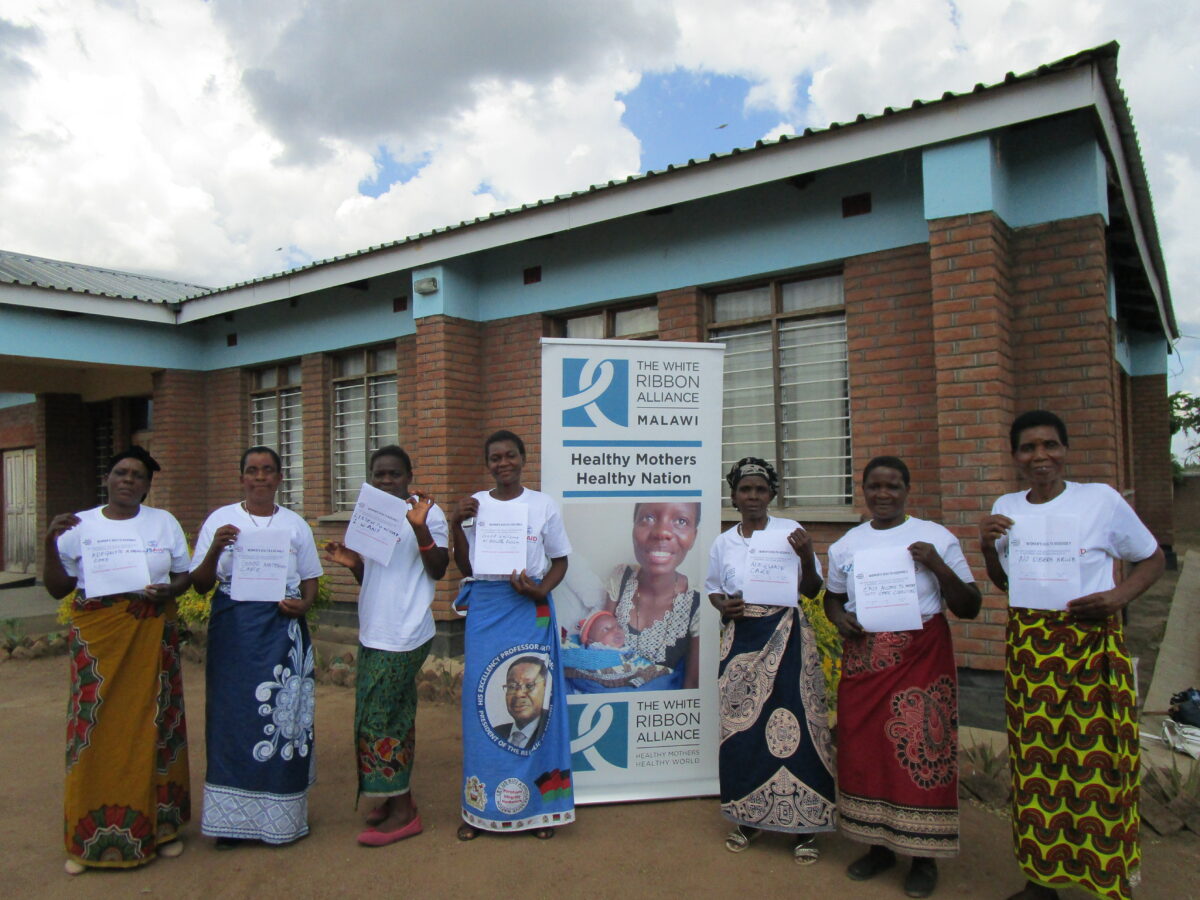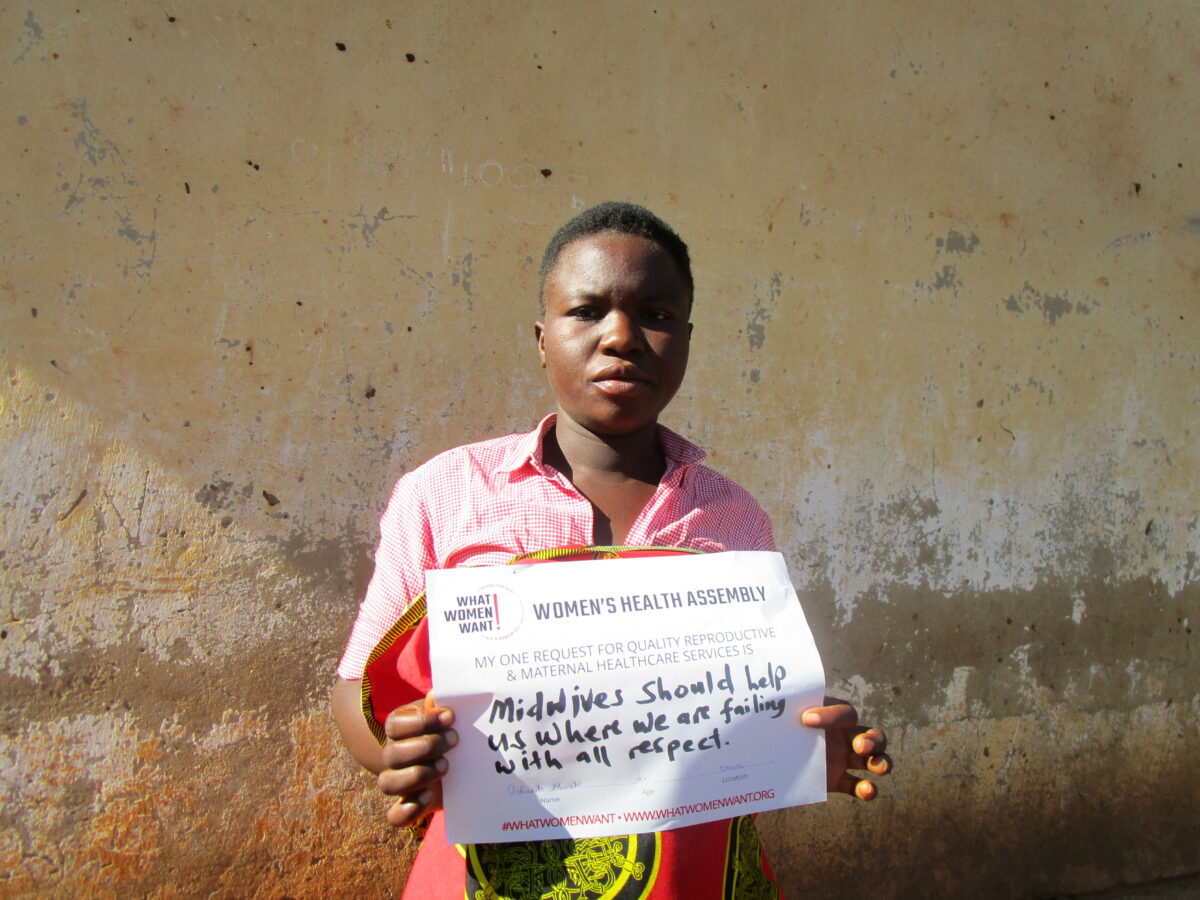For the first time, new quality of care assessment tools are flipping the script on who defines quality health care – bringing in women’s voices to shape what quality means alongside officials. The clarion call of more than 84,000 women demanding to have a say in their health care led decision-makers in Malawi to embrace women’s voices, incorporating them as a cornerstone of two prominent tools measuring the quality of government-sponsored reproductive, maternal, and newborn healthcare services.
The two tools – an assessment toolkit and an auditing and accountability tool – feature top campaign demands including privacy and confidentiality; improved water, sanitation, and hygiene (WASH); and respectful, timely, and attentive care. Launched in 2020, the assessment toolkit measures the quality of maternity services in government-run units by asking women about their experiences of care. This tool is a first-of-its-kind to both ask women about their experience and make sure their feedback is relayed to nurses and midwives at the facility, who take steps to improve care provided.
Complementing the assessment tool, the auditing and accountability tool is used during inspections by regulatory bodies to grade health facilities. This tool ensures women’s demands are more than a checkbox on a list – if not in compliance, facilities must implement a corrective action plan or risk having some or all services shut down. On day one of its use, the tool led to key changes. For example, at a health facility in Chitipa district, the inspection found that there were not enough staff in the labor ward. Upon receiving the report, the district health officer committed to act and has hired an additional midwife.
Together, these tools bring women’s demands to the forefront of quality care and create new pathways to hold decision-makers accountable to better meet women’s care needs.




